I’m in bed, desperately trying to get to sleep. It is after midnight, I’m warm and cosy, I’m more than tired, I have a long day ahead… and I am going to have to get up and get back on the computer. Words and images are dancing on the inner screen and giving me no peace.
I know what did it… We had been talking about censorship… the banning of books, the tearing down of statues, the demonisation of past heroes because they no longer meet our strict criteria of modern mores. It had been compounded by opening a book I love but which was written well over a century ago. The language, by modern standards, is hard going, although the ideas expressed are crystal clear.
We forgive the archaic forms of speech, knowing them to be the literary language of the time… taken in context, there is no other way in which the prose could have been written. In spite of the wording being as heavy as lead, I read the book sometimes and quite specifically for its main subject matter and clarity of thought, but, like any book written in another time, it has also become something of a mirror, highlighting a raft of social conventions which would not be acceptable in today’s world.
The book’s modern copies carry a disclaimer, pointing out that the author, some of the terms used and a few of their social beliefs were, quite simply, a product of their times. Times that have changed and, in many ways, moved forward, making many once – acceptable, even widespread beliefs, seem either absurd or downright offensive. While we readily forgive a writer for using outmoded language in books written when such usage was the norm, we are less able to forgive the discrepancies between then and now where social mores are concerned.
Can we dismiss knowledge and wisdom… or even talent… because the artist uses a phrase we would now expunge or condemn? Condemn the artist for the accepted normality of his era? Dismiss the work because the artist lived a century before us? Even where we now see a gross injustice or appalling wrong, I don’t think we can afford to do that… all change has to begin somewhere, and it cannot begin until enough of us take notice and say ‘no more’.
The book in question was written as fiction, yet the story conceals and reveals truths we can explore by engaging both the imagination and the emotions… a method of storytelling we also use in our books today. Thinking about it reminded me of yet another vintage book, one of my very favourites, The Little Prince, written and illustrated by Antoine de Saint-Exupéry.
The illustrations are deceptively simple. One of the first pictures in the book looks like a hat…

It is, of course, not a hat, or what would be the point of it? But any grown-up casting no more than a cursory glance at the image could be forgiven for thinking that it is a hat. They might even make unconscious and snap judgements about what kind of hat, or even, by extension, the person who might wear it, their social bracket and potential occupation. They would probably forgive the lack of skill and symmetry, deciding that the artist must have been a child who knew little better, instead of taking a closer look and paying attention.
For the hat is not a hat. It is an elephant. But it looks nothing like an elephant…until you realise that it has been swallowed by a boa constrictor. Due to the limited nature of many adult imaginations, the illustrator made his point quite clear…
 By this time, I have risen from bed and am trying, with the half-awake brain to capture the clarity of thought of the half-asleep one. It had all made sense in the dark…
By this time, I have risen from bed and am trying, with the half-awake brain to capture the clarity of thought of the half-asleep one. It had all made sense in the dark…
The grown-up who pays attention, not only to the drawing, but to the source of the drawing… the artist… might learn a good deal about both the subject and about the life and times of the artist.
These days, for example, few people wear structured hats, so a hat might not even be the first thing you think of on looking at the image. Back then, desert hats, trilbys, Panamas… hats were common. A social necessity… a product of their times. We wouldn’t decry the writer or artist’s work because fashions have changed.
By the same token, I don’t think we can afford to dismiss or to arbitrarily censor works from the past in which characters hold views diametrically opposed to our own or to modern perspectives. It is from the shock we might feel, for instance, on reading a hitherto favourite character express themselves in terms we find objectionable, that we will start to take notice of how such views are still being expressed and sadly, believed in our so-called and overly ‘PC’ world.
We need to see how insidiously the written word can shape our prejudices… as well as how it can highlight them in order to allow them to be excised and eventually healed. We need to know and remember, not erase from the past, the horrors humankind has perpetrated on itself through misjudgement and a misplaced sense of superiority. We also need to separate the fact from the fiction, the writer from the work. Few of our greatest artists have led blemishless lives, in fact, many of our greatest artists have pushed the boundaries of outrage… and yet their works have become treasures.
We can condemn the acts of another human being as being wrong, and yet appreciate their talent in holding up a mirror to a time, a place, or even our own faults. We can allow their blindness to open our eyes, for it is from the mistakes and the errors that we learn. And if someone has made and highlighted those mistakes, however unconsciously, in the time before we were… is it not better to learn from them than to have to commit the same mistakes ourselves?


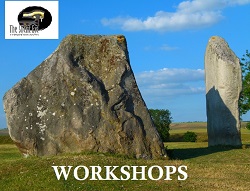

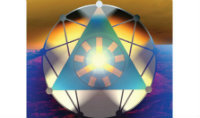

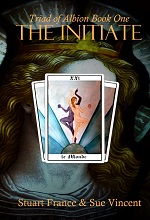


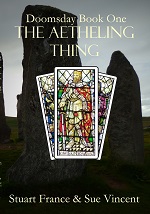
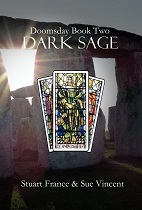








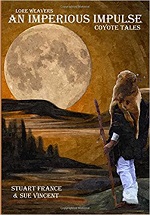


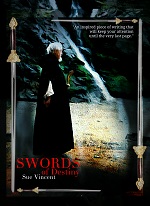

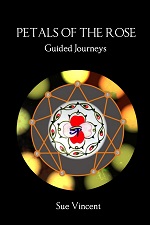






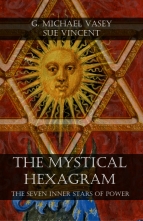

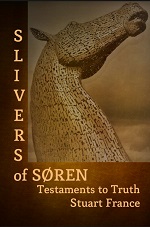


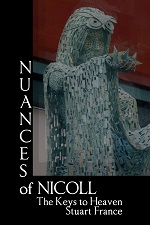


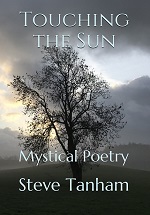

I confess a liking for long dead authors. So for example, the ancient writers had a sharp eye for hypocrisy, like Tacitus with his “The more corrupt the state, the more numerous the laws.”
Then you have those who have not been dead so long, like John Buchan, with his window on another world. One of his characters mentions casually (set about 1912 from memory) that he’s going to the House of Commons to hear somebody speak (not a minister, just a back bencher) on a particular topic ‘because he’s particularly well informed on it.;
Unimaginable today
Books are windows into worlds we’ve passed through and forgotten. People can try rubbing out history, but if you’re not careful you just wear a hole in the paper and the truth shines through
LikeLiked by 4 people
We can try rewriting the past, but no matter how we tell it, the trut of whatwas will still be affecting what is and what will be.
LikeLiked by 3 people
A small detail that upsets a lot of people who feel truth should keep up with fashionable thought 🙂
LikeLiked by 1 person
They might want to try living in the real world….
LikeLiked by 2 people
heaven forfend! They might have to talk to oiks like me 🙂
LikeLiked by 2 people
Might do the buggers good…;)
LikeLiked by 3 people
It ought to be available on the NHS then 😉
LikeLiked by 2 people
I’d vote for that 🙂
LikeLiked by 3 people
I’ll just phone up and tell them, ‘make it so’. 🙂
LikeLike
Please do 🙂
LikeLiked by 1 person
Maybe we should rub a lot harder, Jim…
LikeLiked by 4 people
It could be a plan 🙂
LikeLiked by 3 people
It’s in our half awake, trying to sleep moments, that these thoughts come to us, Sue – and, often, they are the most insightful and truthful. You certainly made me think when I first read your post here, earlier. Thank you.
LikeLiked by 1 person
It is aliminal, distraction-free state where odd thoughts pop up…
LikeLiked by 2 people
True. x
LikeLiked by 2 people
I often wonder what people will think of us in a hundred years time. I have the feeling they will not be impressed…
LikeLiked by 1 person
Times and fashions change. Even if they are not impressed with us… that should not devalue what art we have produced…
LikeLiked by 1 person
They will love our art, just not the politics!
LikeLike
I wonder. If they disapprove of our ideas and beliefs, will they appreciate our art or condemn it as we are now doing with so many pervious artists…
LikeLiked by 3 people
I really hope they wouldn’t be so petty and small minded…
LikeLiked by 1 person
They probably would…
LikeLiked by 1 person
Reblogged this on Anita Dawes & Jaye Marie ~ Authors.
LikeLiked by 1 person
Thank you for reblogging 🙂
LikeLiked by 1 person
You expressed this PERFECTLY: “By the same token, I don’t think we can afford to dismiss or to arbitrarily censor works from the past in which characters hold views diametrically opposed to our own or to modern perspectives. ”
I am blown away by your insights, and so happy to see that I’m not the only one who feels that way.
We don’t see the parallels in past and present. People in my country who are trying to tear down the past forget the oft said words of Santayana about being condemned to repeat history.
Thomas Jefferson tried to get the abolishment of slavery into the constitution. He hated slavery, but the constraints of the times were such that all he could do was to treat his slaves as well as possible. We don’t look at the fact that many of the inexpensive items we buy on-line are made with slave labor, or that there is more slavery in the world right now than ever before. If we don’t see the slaves living in our “back yard,” they’re not there?
If we can’t seem to abolish human trafficking during our own time, who are we to condemn Jefferson and Washington for not being able to abolish slavery in their time?
LikeLike
It is the same here… this desire to sanitise history and demonise those who do not fit the desired view of how it ‘ought’ to have been, rather than how it was.
LikeLiked by 1 person
On target. The first time I saw history “re-imagined,” I shuddered.
LikeLike
That’s an awful word for what is essentially censorship…
LikeLiked by 1 person
Bulls eye 🎯 🎯 🎯
LikeLiked by 1 person
I couldn’t agree more with every word you wrote. The other side of this issue seems to be that we have somehow taught an entire generation or more that they can have what they like and be what they want. We seem to have taught them that they live in a bubble wrap world where nothing should offend them – ever. We don’t appear to have taught them that experience of rejection, hate, hard times, and so on, is a key part of growth and maturity.
LikeLiked by 3 people
We learn little from having everything, including a sense of entitlement. It is the challenges that shape who we become.
LikeLiked by 1 person
In the UK it began, as far as I am aware, in the education system, failure was considered bad. No longer were there class positions, competetive sports were stopped. All children had to be praised even if they had done little and made no effort.
But this led to unrealistic ideas of pupils’ abilities and children who struggled thought they could become doctors, lawyers or airline pilots.
Then there was the swing of the pendulum. In the past, people had been taught to put others fiirst. Then came the idea that people needed to have some time for themselves, and occasionally think of their own well-being. Sadly this has morphed into ‘me first’ at all times. Park my car a little distance away in a safer spot and walk? No way! I’ll pask it in the most convenient place for me. Step onto the grass to let the old lady stay on the footpath to maintain social distance? No way. I’m not getting my feet muddy. Go into single file to allow older people to pass more easily? No way. I’m talking to my friends.
This, gmvasey, is how that came about. Simplified, I admit, but that’s it in a nutshell.
LikeLiked by 3 people
Reblogged this on The Magical World of G. Michael Vasey.
LikeLiked by 1 person
Hello Sue. Great post. I find that many people have difficulty disntinguishing artists from their work. I can, but many people will, for example, hate The Sun Also Rises because its authot was a racist and had a dim view od women. To me, those are two different issues. As a human being Hemingway offends me, and he would not have been my friend had we met, But as a writer he plseaes me immensely.
LikeLike
I find it hard to accept when well-loved books and respected authors suddenly fall out of fashion because an unplalatable fact about their private lives comes to light.
We do not have to like the artist or writer, or condone bad behaviours in order to appreciate art.
LikeLike
Yes to all of that. You can’t censor the past for being what it was. The people who do that, you’ll have noticed, get their dander up about one aspect of past behaviour, usually slavery/racism. Both iniquitous, but slavery has existed since the dawn of time and still does exist in many countries. You can’t pretend it didn’t and doesn’t by banning books that mention it. Funnily enough though, I have yet to see a mass movement to ban books that contain misogynist material, because, you know what? We’d have to ban every single one written before a few years ago and some written after too. Books fall out of fashion when they cease to be relevant or the language gets difficult or obscure. If we need stickers on books to warn us that there is something in the content that nowadays we find offensive, there’s something wrong with the way we think now, just as much as the way we thought then. We pick and choose, set a hierarchy of indignation and that, frankly, is what gets my dander up. What was it about the mote in your own eye?
LikeLiked by 2 people
That’s what gets me too, Jane… that mote in the eye…
We actally need to know what was wrong with our views in the past, not pretend all was sweetness and light.
LikeLiked by 1 person
It’s the selectivity too. I’m not a fan of slavery (litotes) but we ought to stop picking it out as the only thing to get angry about and the only mindset that needs challenging. Seems to me we are sleeping quite easily at night knowing that millions and millions of children across the globe are being forced into slavery to a husband they don’t want.
LikeLiked by 1 person
There are so very many issues we ought to be admitting and getting angry about…
LikeLiked by 1 person
Issues that are making real people suffer, now, not dead or fictional people.
LikeLike
Exactly.
LikeLiked by 1 person
Reblogged this on Stuart France.
LikeLiked by 1 person
A very interesting post so, you have gone straight to the nub of the matter. We can’t rewrite history, it happened, now it is there for us to learn from.
LikeLiked by 1 person
But many people want to try…
LikeLike
Yes indeed they do
LikeLiked by 1 person
So well put, Sue. We cannot change history, no matter how untasteful it is to us. We can only learn from it. I too love The Little Prince.
LikeLike
It is a beautiful book on all levels…
LikeLike
Thank you, Sue. Rewriting the past is a disservice to all. We need to learn from our mistakes if we’re ever to become more fully human.
LikeLike
Just so, Gwen… nor can we turn a blind eye to it as it is only from our mistakes that we learn.
LikeLike
I wonder what will be said about the writing of today in 100 years. Excellent post.
LikeLike
Thank you. We’ll probably be just as severely criticised….
LikeLike
With all those profound thoughts, Sue, it’s no wonder you couldn’t sleep. I agree that words do shape our view of things (why I don’t trust anything that comes from the media), and one of the reasons I enjoy reading old books (the Mystery of the Shifting Sands, Dickens, Bronte, etc).
LikeLiked by 1 person
I enjoy old books too…a window on another world.
LikeLike
Good, basic common sense, not a lot around now.
LikeLiked by 2 people
Unfortunately not, Lucinda…
LikeLiked by 2 people
We need to be able to feel uncomfortable, not avoid it. If the only thing you will read or think about is what makes you feel good, you will never learn or grow. I also really dislike how people erase people because they once said or thought something offensive to them. What do their actions now show? If you don’t allow people to learn, or change, then what you find wrong won’t ever change. No one at 50 is the same person they were at 18. And who is perfect? We’ve all been both offensive and blind about some things, just as we’ve all been hurt and offended. (K)
LikeLiked by 2 people
Well said, Kerfe… and very much the point I was tryingto make.
LikeLiked by 1 person
In years to come, they will look back at this insane time and judge harshly those who have led lambs to slaughter. Harshly they shall be judged, and they will deserve it. This PC cult is doing more damage than many things of the past has done. It is destroying communication.
I read old books and enjoy; I gaze upon old statues and honour; I remember my ancestors and give them credit for surviving harsh times.
The past is forgiven. What is done is done. What is being done is another matter. For an intelligent species, there are many fools running around.
LikeLike
I have never seen how we can afford to judge pople from another era by the standards of our own.
LikeLike
And that is the dilemma. I am judging those who are currently destroying free speech, democracy and freedom. Whether we can afford it or not, future generations will look back and judge. It is human nature. The right or wrong of it is out of my hands.
LikeLiked by 2 people
Adhering to the belief in ‘freedom of speech’, opinion respectfully written or spoken, is important in a democracy, but hateful or inflamed language intended to hurt or punish, perhaps should be censored. However, in your example, writing that reflects the mores of the time can be excused with a caveat that lets the reader know that times are now different and reflect a different way of thinking. I cannot, for instance, imagine banning ‘The Adventures of Huck Finn’ because of its racism that is no longer tolerated. It is obvious to most that it is a period piece. Statues or symbols of that racism I believe should be removed, lest their intended message falls on fertile ground. This battle rages on in our American South.
No wonder this subject kept you awake! Hope you finally were able to find some peaceful rest. 🙂
LikeLike
I would not condone current expressions of prejudice, whether, religious, racial or in any other for. But it was the period pieces that sparked me off thinking…How can you fight against injustice ifyou pretend it is not real and never happened?
LikeLiked by 1 person
One of my favorite books is “Gone With the Wind” – a horribly flawed but deliciously written book. Sometimes I’m embarrassed to admit I like it so much because its racism, stemming from the time it was written and set, is genuinely terrible. It’s also sad that such a marvelous main character in Scarlett can go unread because of the author’s horrible social setting. I often wonder what works of the current times will be panned in the future for being distasteful.
LikeLike
That was one of the books that crossed my mind thinking on this…
LikeLike
great perspective on censorship.
and I just read The Little Prince last year, after hearing it was one of Mr. Roger’s favorite books…
LikeLike
It is a beautiful book on all levels…
LikeLiked by 1 person
I agree…
LikeLiked by 1 person
A book I haven’t read when maybe I should after reading all the comments…Your posts are always so very thought-provoking Sue…x
LikeLike
The Little Prince? Definitely one to read, Carol. x
LikeLiked by 1 person
Brilliant, Sue. If we turn a blind eye on the intent of the past, or if we criticize because things are different today, we will never learn.
LikeLike
We cannot just ignore what was… just because we don’t care for it…
LikeLiked by 2 people
Exactly!
LikeLiked by 1 person
I agree with you — except where I don’t agree with you. There are some books that are so rife with hatred against Jews, for example, that as a child I didn’t even understand. And frankly, I don’t think the books are that terrific that this level of hatred should be suggested as ‘good reading’ for kids.
There are books that have some objectionable parts included — but there are ALSO books that are packed with hatred and loathing. I actually can’t watch westerns where they casually wipe out whole tribes of Indians. i simply can’t. Not even with the greatest respect for the makers of the movies or the actors in is. They make me ill. I suppose each of us has our own level for tolerating this stuff, but mine has really diminished as the years have passed. I can’t tolerate bigotry and racism no matter how beautifully phrased. Especially when I am one of the people they are busy hating.
LikeLike
I don’t believe there is ever any excuse for hatred or bigotry… but as we are going to get it anyway, I feel we need to see its stark and ugly reality if only so that we can make a conscious choice to turn away from it towards a society that embraces all.
LikeLike
This is such a well-written, well -thought -out piece, Sue. I enjoy older books, not just for the language and style, but for the comparison to today’s books, and that “PC” label which has frankly started getting on my nerves. How else do we have a history to look back on, to possibly be enlightened by, and even learn from. Well done, Sue.
LikeLike
Thanks, Sara. I agree, we need t be able to look back and learn so that the same mistakes s=do not keep recurring.
LikeLiked by 1 person